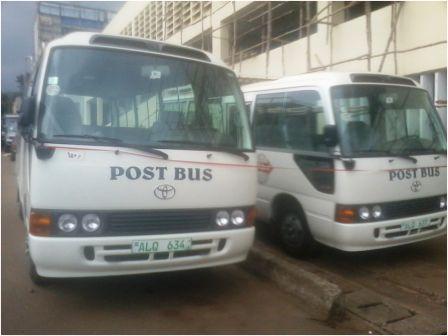An “okadised” society: implications on teenage pregnancy in Sierra Leone
The Okada services (a taxi-like service that ferries people between localities), which is available countrywide especially in urban and peri-urban settings, is facilitating social intercourse between communities in Sierra Leone. Such has enormous benefit to the wider public with regards easy access to villages and towns, transportation of goods and enhancing the referral of patients between healthcare facilities. (Photo: Alhassan Fouard Kanu, author)
The Okada services have provided gainful employment for the youths, thereby reducing street pick-pocketing and arm robbery in cities across the country.
The down-side of the Okada services though, is its fuelling of drop-outs among school-going youths. Most of the youths, after the Basic Education Certificate Examination (BECE) consider the Okada trade as a preferred professional destination. Whilst some of the riders from poorer background use this trade to raise money to enable them to continue their education, others are being pushed by their parents into the trade to assist in running their poverty-stricken households; thereby truncating educational opportunities and consequently blighting not only the future of these youth riders but that of Sierra Leone.
Despite the Okada benefits in getting people quicker to their destinations and their ability to navigate traffic congestions, Okada has however, contributed to the economic hardship in the country with dire consequences on the health of the population. The frequent accidents and growing rise of overweight/obesity and its co-morbidities (high blood pressure, arthritis etc) as result of the inactivity among city dwellers are serious public health concerns.
On a social and economic point of view, our wives would have to reduce monies meant to feed the families to pay for Okada services to the market. This means the amount and quality of food intake for the household are consequently reduced; leading to under-nutrition and/or malnutrition of household members, especially the children and pregnant/lactating women.
The majority of the country’s breadwinners who cannot, by their salaries, make Le20,000 a day would have to pay for Okada services to get to work and their children to school; exceeding their daily income. This accounts for the rife in corrupt practices in all places of work, as corruption literally becomes a password to logging-in to daily survival. The “tin-tranga” gnarls and grumbles around the country may, in addition to upstream factors, be connected to payments for Okada services, coupled with mobile phone charging and top-ups. This makes life easier (enhanced transportation and communication) but economically tougher, especially for the majority poor.
Of greatest concern, from a public health perspective, to the negative effects of the Okada to society is its amplification of teenage pregnancy. Anecdotal evidence has it that, the rate at which our teenage girls are getting pregnant is growing exponentially; and girls as young as 13years of age are victims. This has contributed to drop-out rates of girls from school.
A worrying observation was noted by this writer, who followed antenatal clinic (ANC) attendees last year in two government hospitals in the northern province where it was found out that, for every 10 antenatal clinic attendees, 6 are teenagers and of which 50% are Okada-related (where the man/boy responsible for the pregnancy is an Okada rider). The relationship between Okada riders and teenage (especially school going girls) pregnancies can be linked to the rapid “Okadisation” of our society – the shift from traditional trekking to Okada riding between places. Sierra Leoneans no longer fancy walking; which has enormous health benefits but are rapidly cultivating the practice of moving around by Okada. In the pre-Okada era, students trekked, for example from Magburaka to Mathora government girls school (about 6 miles round trip), in the Tonkolili district. This is no more the practice in today’s school going pupils, making it an economically challenged practice for their poor relatives. Most parents can’t afford giving both lunch and Okada service fees on a daily basis to their children. In the absence of parental support, some of the girls have to enter into transactional sex with these riders to ferry them between their homes and schools as well as supplementing their ‘lunch’ at school.
Also observed is the contagious effect of girls dating Okada riders. Girls admire their peers or siblings with Okada ‘boyfriends’ who provide them safe ride to and from the school premises. This sometimes sees a cohort of friends all got impregnated by Okada riders. For many girls, they consider these riders as “free spenders” as compared to older men. It could be true, considering the ages of most of these riders and the absence of parental responsibilities as seen in older men who are prudent in releasing the cash in sexual transactions.
It is therefore critical that public health measures aimed at tackling teenage pregnancies target this emerging and girls-wooing profession (Okada riding). This would also help in reducing the spread of sexually transmitted diseases, including HIV/AIDS in the country.
by Alhassan Fouard Kanu
Stay with Sierra Express Media, for your trusted place in news!
© 2012, https:. All rights reserved.




